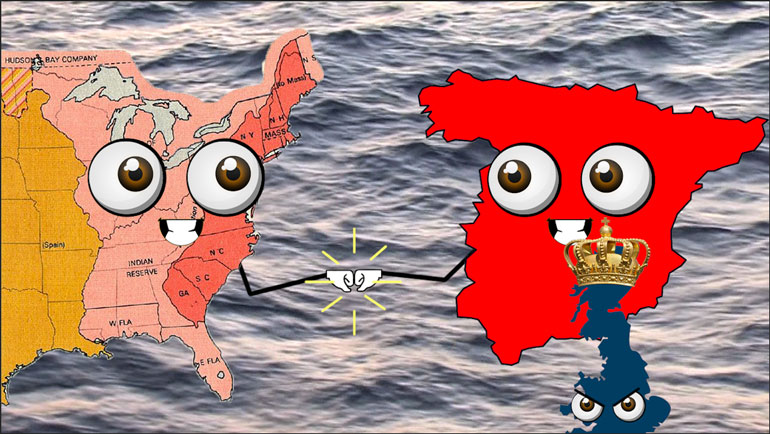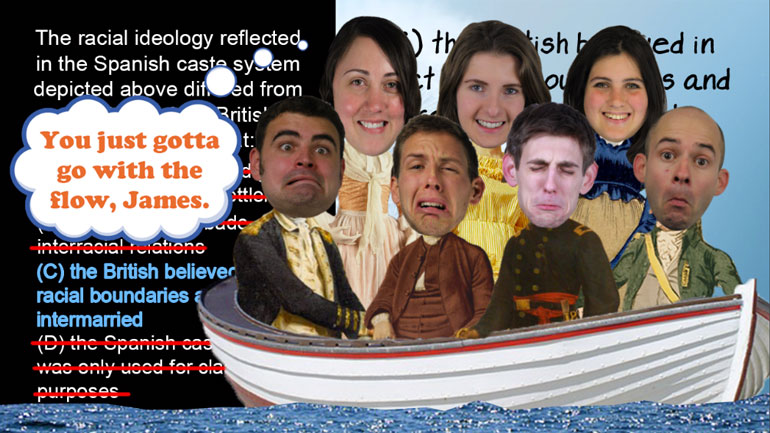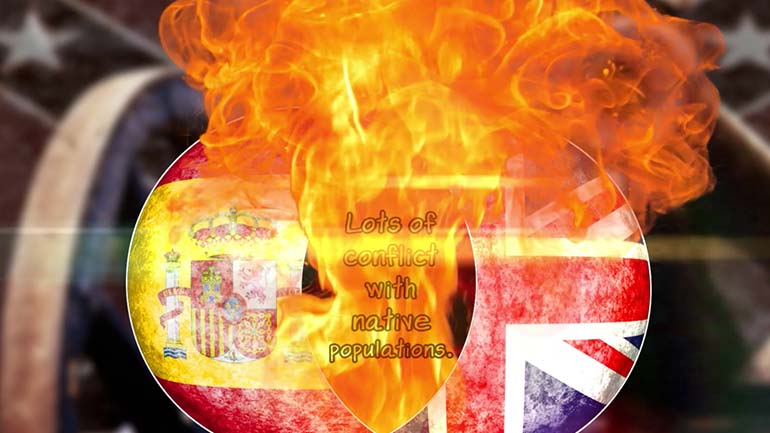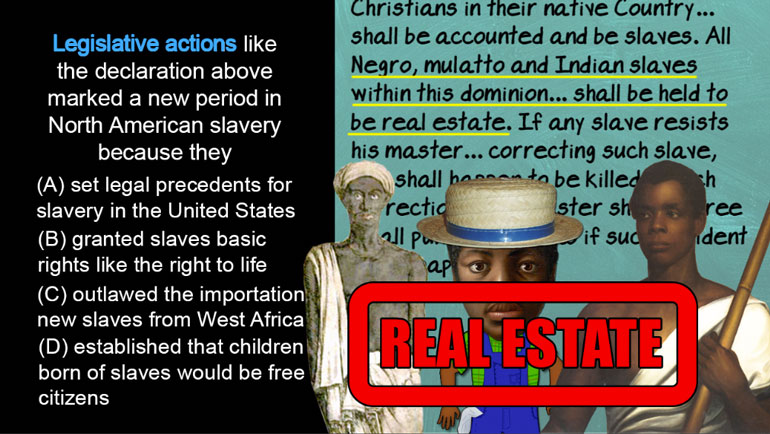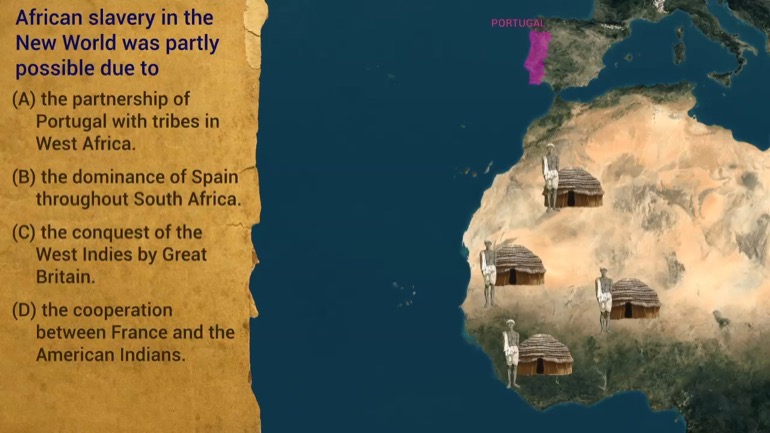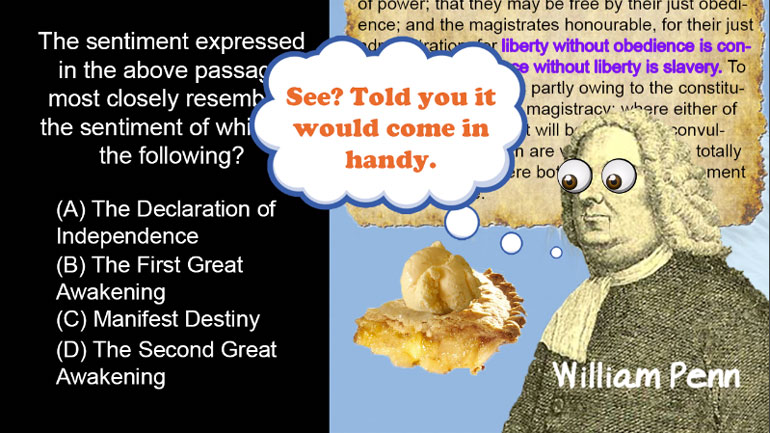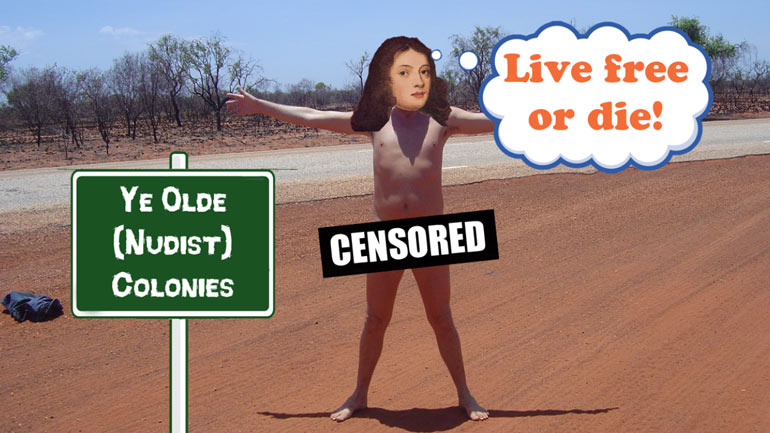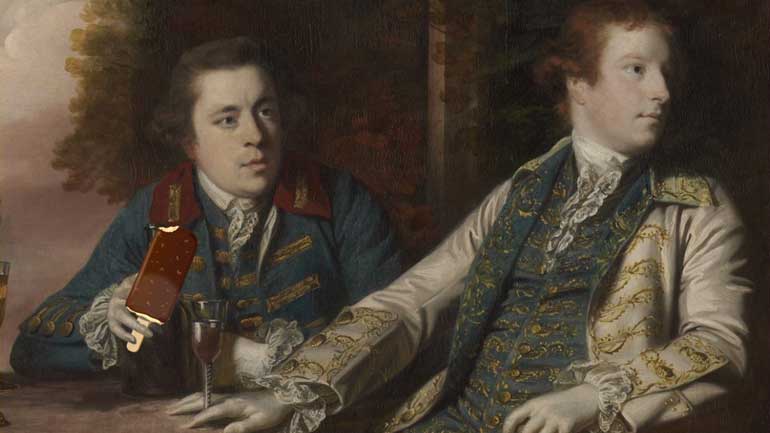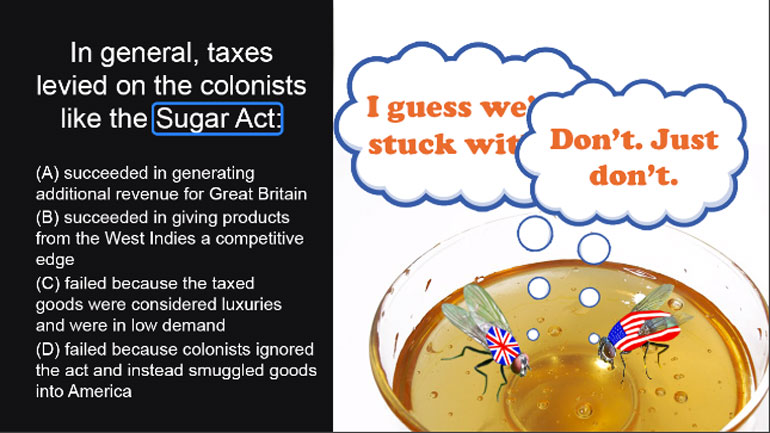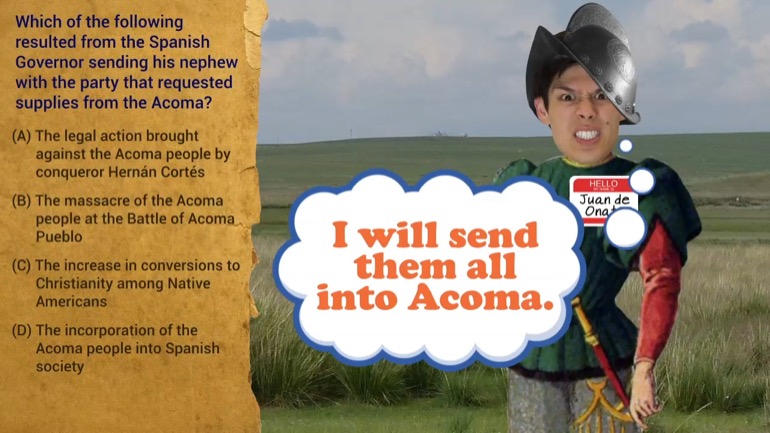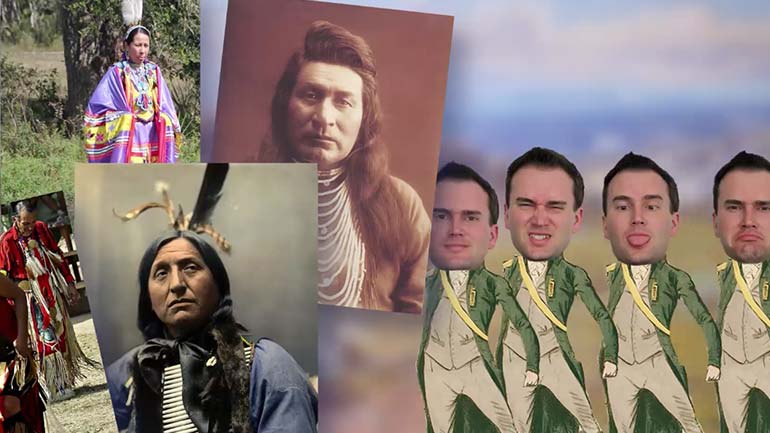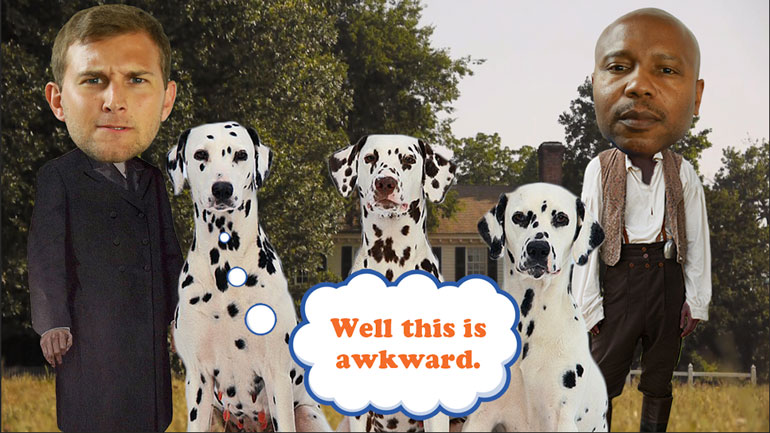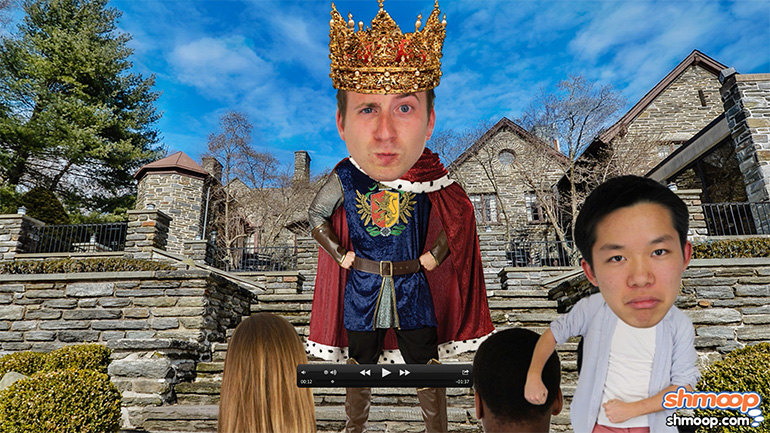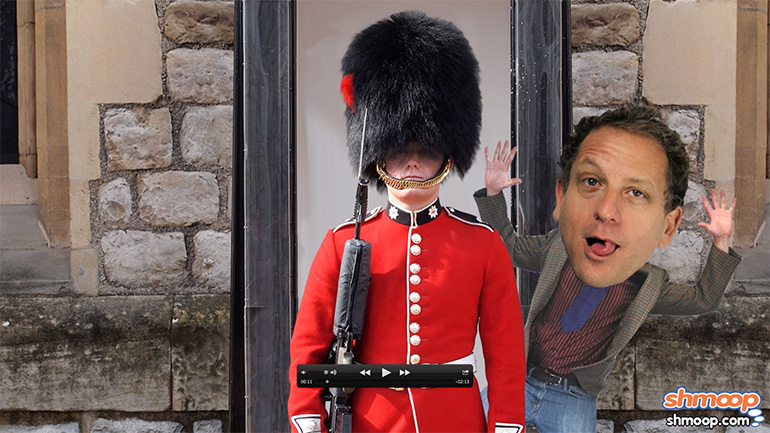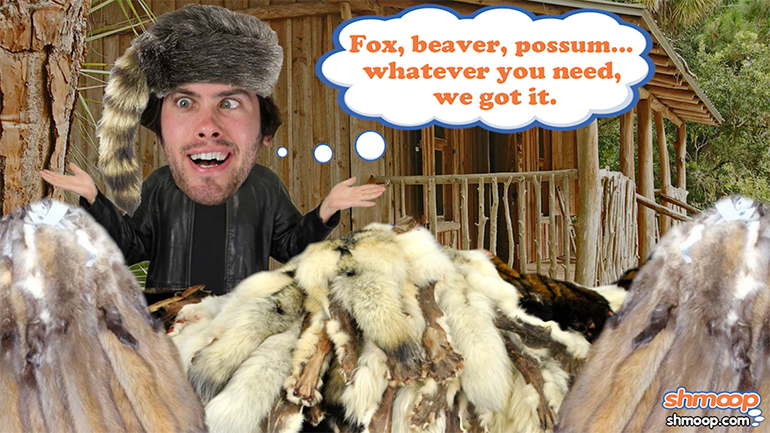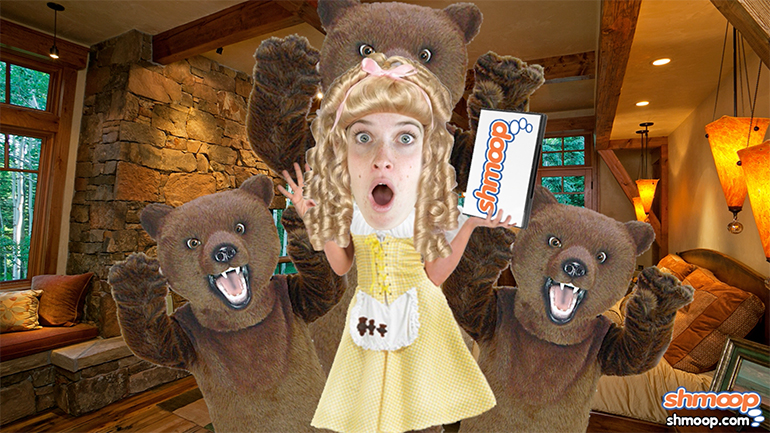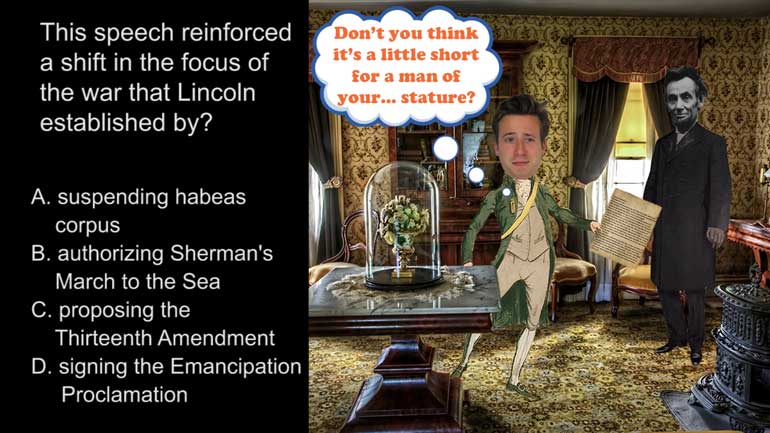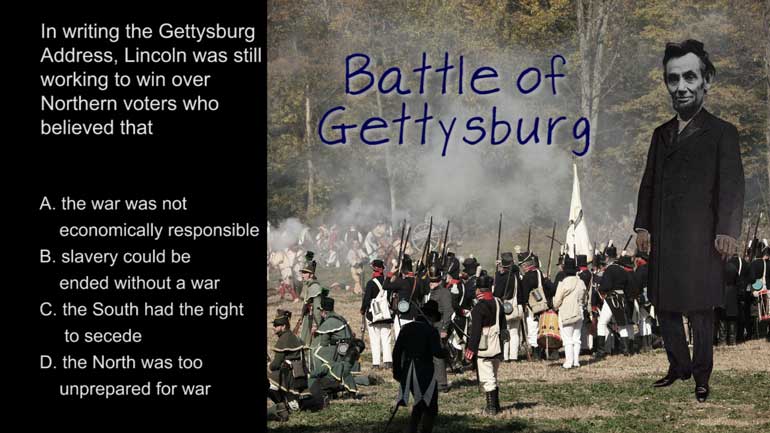ShmoopTube
Where Monty Python meets your 10th grade teacher.
Search Thousands of Shmoop Videos
Period 2: 1607–1754 Videos 18 videos
AP U.S. History 4.3 Period 2: 1607-1754. The image most directly reflects which of Britain's goals for the North American colonies?
AP U.S. History 1.1 Period 2: 1607–1754. The racial ideology reflected in the Spanish caste system depicted above differed from the views of the...
AP U.S. History 1.2 Period 2: 1607–1754. Conflicts between Spanish colonizers and native populations, compared to conflicts between British colon...
AP U.S. History 2.1 Period 2: 1690-1754 247 Views
Share It!
Description:
AP U.S. History 2.1 Period 2: 1690-1754. The Sugar Act reflects what shift in relations between Great Britain and its colonies?
Transcript
- 00:00
[ musical flourish ]
- 00:03
And here's your Shmoop du jour, brought to you by the Sugar Act,
- 00:06
Britain's sweet, sweet revenge.
- 00:09
Check out this excerpt.
- 00:10
[ mumbles ]
Full Transcript
- 00:13
[ mumbling continues ]
- 00:19
All right, and the question:
- 00:20
The Sugar Act reflects what shift in relations between
- 00:22
Great Britain and its colonies?
- 00:24
And here are your potential answers.
- 00:26
[ chewing ]
- 00:29
What exactly was the Sugar Act?
- 00:31
Well, if you take out all that legal mumbo jumbo,
- 00:33
we see that "there shall be... paid... upon every gallon of
- 00:36
molasses... the sum of three pence."
- 00:39
That just means the British wanted the colonists to pay a tax
- 00:42
on all the sugar they imported from other British colonies.
- 00:45
But what was it that made the British
- 00:47
put this new tax in place in the first place?
- 00:50
Did they impose the Sugar Act as a sign of A -
- 00:53
the strengthening of bonds between the colonists and the British?
- 00:56
Well, think about it.
- 00:57
How would you feel if all of a sudden you were told
- 00:59
you had to pay for something you used to get for free?
- 01:02
That'd be like your parents saying you need to pay
- 01:04
them the privilege of eating a family meal.
- 01:06
So that tax definitely not strengthening any bonds.
- 01:09
In fact, kind of the opposite.
- 01:10
Did the Sugar Act have to do with B -
- 01:12
the burgeoning alliance between British colonies
- 01:16
against their home country?
- 01:17
Well, there were definitely rumblings within the North American colonies
- 01:20
about how much they disliked the British.
- 01:22
But this question is asking about all the British colonies,
- 01:25
including the ones all the way in the West Indies.
- 01:28
It's still a little early for the tweet heard around the world.
- 01:31
Did this tax reflect D -
- 01:33
the growing economic dependence of the colonies on Great Britain?
- 01:37
Well, actually, the colonies were starting to become
- 01:39
more economically independent from Great Britain,
- 01:42
and this whole separation anxiety
- 01:43
on the part of the Brits is what caused such a frenzy in the first place.
- 01:47
So it ain't D, either.
- 01:48
That means the Sugar Act reflected C -
- 01:50
the diverging goals of Great Britain and their North American colonies.
- 01:54
Well, during this period the New England colonies were sort of like teenagers:
- 01:57
rebellious, feeling pretty smart, but no longer
- 02:00
wanting to listen to their stuffy, old British parents.
- 02:02
The decision to put a tax on sugar was only the beginning, though.
- 02:05
12 years later, the colonies would be waging
- 02:07
full-out war against their former masters.
- 02:09
So C is the right answer.
- 02:10
They probably should've put a little more thought
- 02:12
into that whole spoonful of sugar approach.
- 02:16
[ ding ] [ birds chirp ]
Related Videos
AP U.S. History Exam 2.45. The journey shown on the map was an example of...what?
AP U.S. History Exam 2.26. This speech reinforced a shift in the focus of the war that Lincoln established by...what?
What did the Spanish messengers bring with them to North America? Hint: you probably wouldn't be thrilled to get this for your next birthday.
AP U.S. History Diagnostic 24. How did the United States choose containment over the National Security Council Report in Latin America?
AP U.S. History Exam 2.25. In writing the Gettysburg Address, Lincoln was still working to win over Northern voters who believed that...what?
